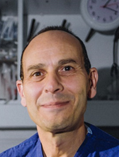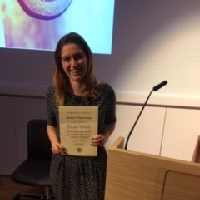Areas of focus
- Renal Inflammation and autoimmunity
Professor Alan Salama

Research
Our focus is on understanding the balance between factors causing inflammatory kidney disease and the natural regulatory mechanisms that keep them in check. Defining these factors may provide better ideas of how to monitor disease, predict those who need treatment and lead to better therapeutic strategies.
Our main clinical interest is in small vessel vasculitis and systemic lupus erythematosus as the important diseases in which there is dysregulated immunity. Understanding how to better treat these diseases, in which therapy can lead to significant side effects, is critical with new options becoming available. Testing new strategies and protocols as part of clinical trials is an important part of our work
Experimentally, we use animal models of ischaemia reperfusion and glomerulonephritis, while we have in vitro models using cell cultures and granuloma formation to investigate the basis of the immune dysregulation.
Current Research Projects
Investigating the role of salt in promoting renal inflammation and the immunodeficiency state induced by salt losing nephropathies, PhD Student Dr Rhys Evans; in collaboration with Dr Ben Walsh
Investigating the role of myeloperoxidase as a mediator of crescentic glomerulonephritis, PhD student Dr Marilina Antonelou; in collaboration with Astra Zeneca
Investigating the role of myeloperoxidase inhibition on the accelerated atheromatous disease in lupus and vasculitis patients; in collaboration with Astra Zeneca
Understanding the development of granulomas in patients with ANCA vasculitis, post doc Dr Scott Henderson; in collaboration with Dr Paul Frankel
Investigating urinary lymphocytes as biomarkers of disease in ANCA vasculitis; PhD student Jannis Sonnermann; in collaboration with Dr Adrian Schreiber
Defining the role of CTGF in mediating cryoglobulinaemic vasculitis; PhD student Dr Gayathri Rajakaruna; In collaboration with Prof Roger Mason and Ionis Pharmaceuticals.
Group members

Current members Past members
Rhys Evans
Janis Sonnermann Scott Henderson Gayathri Rajakaruna
Marilina Antonelou
Heidy Hendra Anuja Upadhyay Gisele Vajgel RPS Widget Placeholderhttps://research-reports.ucl.ac.uk/RPSDATA.SVC/pubs/ASALA36 - Lipids, the kidney, and vascular injury
Dr Xiong-Zhong Ruan
Dyslipidaemia is the most common metabolic disorder at all stages of CKD and contributes to vascular injury in CKD patients. We have shown that inflammation in CKD increases cholesterol influx and reduces lipid efflux from cells, thus diverting cholesterol from the blood to the tissues. This cholesterol redistribution causes cholesterol to accumulate in the kidney and in the arterial wall, and lowers circulating cholesterol levels. This may be why CVD risk is increased in CKD, yet plasma cholesterol levels (usually directly correlated with CVD risk) are not high. Inflammatory stress, a feature of CKD, also increases intracellular cholesterol synthesis, which adds to lipid accumulation and foam cell formation (a feature of atherosclerosis) in the kidney and blood vessels. This suggests that the level of circulating cholesterol is not solely a reliable predictor of cardiovascular and renal risks in patients with CKD. We are working to identify new biomarkers in blood or cells for risk assessment and to define key molecular targets that can block the cholesterol redistribution in CKD.
RPS Widget Placeholderhttps://research-reports.ucl.ac.uk/RPSDATA.SVC/pubs/XZRUA13 - Causes, progression and complications of CKD
Professor Ben Caplin
Ben Caplin leads a team which aims to further understand the causes and consequences of chronic kidney disease (CKD). The group have a particular focus on endemic nephropathies in low- and middle-income countries (LMICs). Our current work includes:
Endemic nephropathies
Globally, most CKD occurs in the elderly, and in those with diabetes and cardiovascular disease but there is now increasing recognition of forms of progressive kidney injury which are not due to known causes, with devastating effects on the working-age populations of Central America and South Asia. The common clinical features of this syndrome, termed CKD of undetermined cause (CKDu) are impaired kidney function in the absence of diabetes, atherosclerotic vascular disease, evidence of primary glomerulonephritis or structural abnormality.
Studies aimed at finding the cause of CKDu in Central America
In collaboration with the team at the National Autonomous University of Nicaragua, Leon (UNAN-Leon), we lead a longitudinal cohort study which has recruited the (initially) unaffected young adult population of eleven communities at-risk of CKDu in Northwest Nicaragua (where the condition is termed Mesoamerican Nephropathy). The study has reported loss of kidney function which is without parallel at a population level with almost one-in-ten young men losing over 15% of kidney function (from a normal baseline) per year. The fact that women were also affected but at lower rates suggests there may be a key occupational element to disease. This work aims not only to describe the natural history and risk factors for disease but also provide a unique biobank of samples captured contemporaneously with the earliest signs of kidney decline in those affected. We are exploring a number of genetic and other ‘omic’ approaches in these samples, in parallel with in vitro mechanistic studies to gain insight into disease aetiology (in collaboration with Professor Jill Norman).
International comparisons of the prevalence of CKDu
Alongside Professor Neil Pearce at London School of Hygiene and Tropical Medicine been instrumental in establishing international collaborative efforts to describe the burden of CKDu around the world, the DEGREE collaboration. Robust estimates of the prevalence of CKDu are not only important for local health service planning but provide the basis for assessment of secular trends and international comparisons, which may in turn provide insight into aetiology.
UK-based CKD Studies
Ben Caplin has designed and contributes to a number of ongoing studies on UK-based CKD.
The East and North London Diabetes Cohort Study (HEROIC)Alongside the team at Barts Health (Professor Magdi Yaqoob and Doctor Kieran McCafferty) we have conceived and designed HEROIC, anobservational cohort study of those with biopsy proven diabetic kidney disease. The study, now recruiting, employs cutting-edge imaging techniques as well as collecting a range of biological samples with plans to exploit (epi)genomic, metabolomic and proteomic technologies to better understand the heterogeneity of disease and gain insight into key mechanistic pathways in the disease evolution and associated complications.
Electronic health records to better understand the consequences of CKD in the UKWorking with the team led by Professor Dorothea Nitsch at London School of Hygiene and Tropical Medicine and Professor David Wheeler at UCL, Ben Caplin co-led the analytical team delivering the Health Quality Improvement Partnership National CKD Audit in Primary Care. Although the audit is now closed we continue to aim to use electronic health records to gain insight into the identification of those with disease as well as access, processes, variability and outcomes of care in those with CKD.
Cardiovascular complications of CKD
The team have a long standing interest in the cardiovascular complications of CKD. In addition to athero-occlusive disease that is seen in much of the population those with CKD exhibit stiff arteries with reduced wall elasticity containing abnormal smooth muscle cells and altered extracellular matrix. The mechanisms underlying the arterial changes in CKD-associated CVD remain elusive. Most recently, taking advantage of arterial material donated by patients undergoing transplantation, working in collaboration with Professor Stephan Beck we have been able to examine the contribution of DNA-methylation in the cells of the arterial in the evolution of these changes.
The group has received funding from:
Medical Research Council – Global Challenges Research Fund
Astra Zeneca
The Colt Foundation
Kidney Research UK
St Peters Trust for Kidney and Bladder Research
Group members
Eva Smpokou
Viyaasan Mahalingasivam
RPS Widget Placeholderhttps://research-reports.ucl.ac.uk/RPSDATA.SVC/pubs/BCAPL88 RPS Widget Placeholderhttps://research-reports.ucl.ac.uk/RPSDATA.SVC/pubs/ BCAPL88?orderby=year - Polycystic kidney disease
Professor Pat Wilson

Research areas:
Polycystic kidney diseases (ADPKD and ARPKD)
Renal development and rare renal diseases

Approaches:
Basic cell biology of renal cyst development: e.g. mechano-sensory mechanisms
Pre-clinical evaluation of potential therapeutic drug targets e.g. ErbB family
Current grants:
Active:
P. Wilson PI:
Grant title: Enrichment of RaDaR Database Research into Children with ARPKD and ADPKD Biomarker analysis of urinary and blood exosomes.
Funder: PKD Charity UK
Total: £28,623
Period: 1st June 2020 to 31st May 2021
Grant title: PKD Bioresource Bank
Funder: PKD Charity UK
Total: £30,000
Period: 1st December 2019 to 30th November 2022
Pending review (delayed by Covid)
P. Wilson Co-PI; J. Norman PI
Grant title: Urinary exosomal profiling of response to Tolvaptan therapy in ADPKD patients
Funder: PKD Charity UK
Total: £15,000
Period: 1st June 2021 to 31st May 2022 *
Grant title: Exosomes as biomarkers of ADPKD progression
Funder: Kidney Research UK
Total: £ 240,511
Period: 1st October 2021 to 31st September 2024*
*Projected
RPS Widget Placeholderhttps://research-reports.ucl.ac.uk/RPSDATA.SVC/pubs/ PDWIL35 RPS Widget Placeholderps://research-reports.ucl.ac.uk/RPSDATA.SVC/pubs/PDWIL35 RPS Widget Placeholder https://research-reports.ucl.ac.uk/RPSDATA.SVC/pubs/ PDWIL35 RPS Widget Placeholderhttps://research-reports.ucl.ac.uk/RPSDATA.SVC/pubs/ PDWIL35?orderby=year RPS Widget Placeholderhttps://research-reports.ucl.ac.uk/RPSDATA.SVC/pubs/ PDWIL35orderby=year
Faculty | ||
| Professor Jill Norman | Centre Lead | |
| Professor Ben Caplin | Deputy Lead | |
| Professor Alan Salama | ||
| Dr Sally Hamour | ||
| Dr Ruth Pepper | ||
| Dr Enriko Klootwijk | ||
| Professor John Moorhead | ||
| Dr Xiong Zhong Ruan | ||
| Dr Ben Walsh | ||
| Dr Harry Horsley | ||
| Dr John Connolly |
 Close
Close

